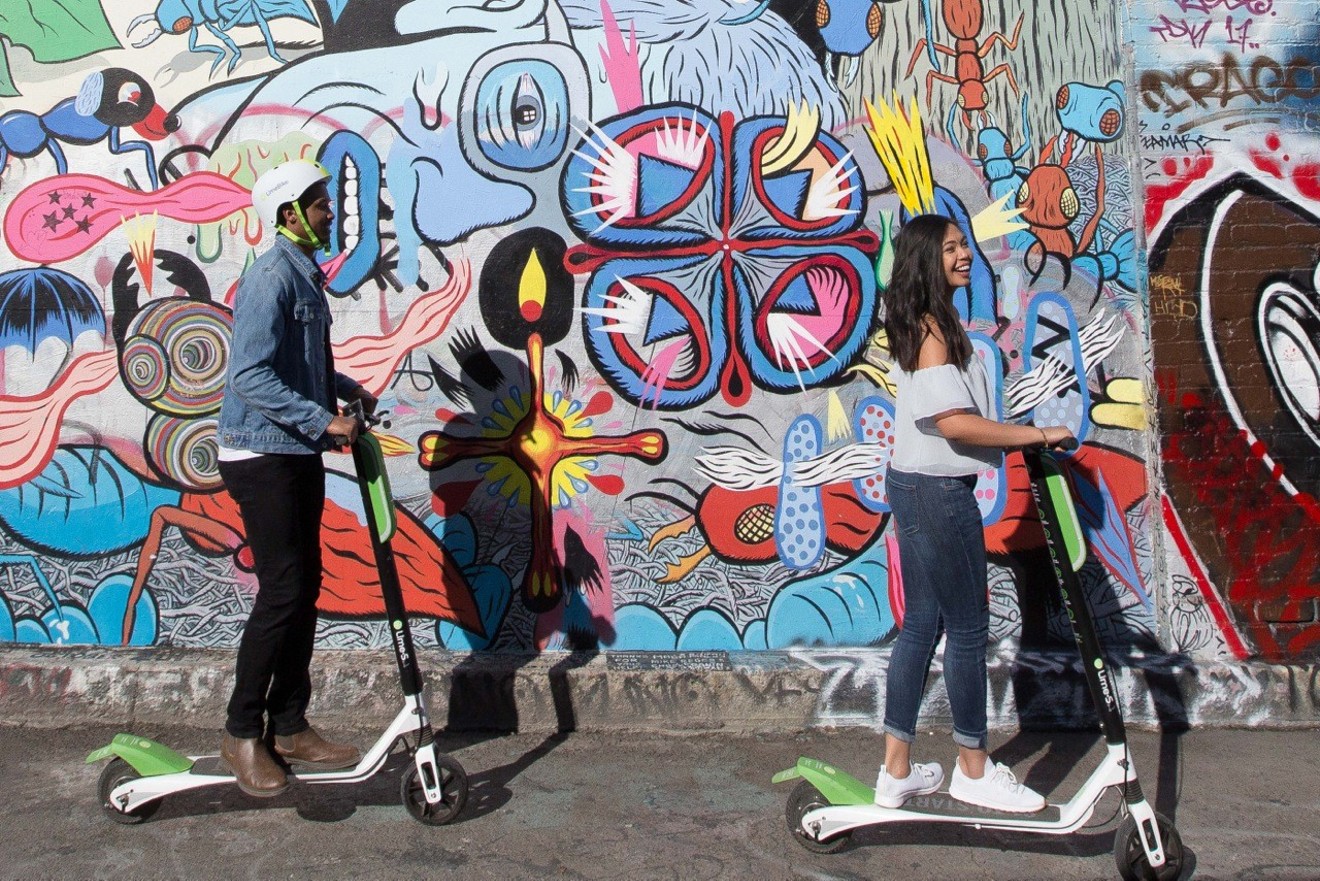They are, to hear City Council members tell it, being ridden too often on the sidewalk, unsafe and a nuisance. The scooters aren't equitably distributed across the city and don't always fill the needs of those who need them for a last-mile connection to or from public transit, either. That doesn't mean they're going anywhere, just that the city and the five companies selling scooter rides in Dallas still have some wrinkles to work out.
For more than a year now, the city and the companies — Bird, Jump, Lime, Ojo and Wheels — have been operating under the terms of a temporary agreement that required operators to be permitted, outlined locations and times for legally parking scooters, and limited the vehicles to roads with speed limits of 35 mph or lower. The pilot, which has been extended twice, is set to expire March 31.
According to city staff, three major concerns have popped up during the 17 months since the city officially made motorized scooters legal in June 2018: rider safety, company and rider compliance with city ordinances, and maintaining the infrastructure that's needed to support the scooters.
Baylor Scott & White Health says that 321 people have visited Baylor University Medical Center with scooter-related injuries since June 2018. Of those 321, 47 have been admitted to the hospital. Fifty-eight percent of those emergency room visits were made by people with broken bones, 57% of the injuries occurred after 7 p.m. and 35% of those scooter accidents resulted in brain injuries.
In addition to time of day, the hospital also cites alcohol use, failure to wear a helmet and uneven road conditions as contributing factors to the injuries.
During the pilot program, the city has also received more than 1,300 requests about scooters through 311, 90% of which were to report scooters that were improperly parked or obstructed streets or sidewalks.
When Dallas adopts a longer-term scooter policy, city staff recommended Monday, it should limit scooter operating hours to 5 a.m. to 10 p.m. throughout the city, with potential exceptions made for certain neighborhoods, maintain the rules against riding on sidewalks in downtown Dallas and Deep Ellum, limit scooter speeds to 20 mph and institute slow zones where scooter speeds would be capped at 10 mph with the help of a geofence maintained by the companies providing the scooters.
The city should also require operators to distribute scooters in lower-income neighborhoods, according to staff.
While the council members hearing the presentation Monday agreed that scooters should be better distributed, they pushed back on throttling speeds and limiting the hours during which scooters can be rented."I think the (slow) zones make sense, but with the overall restrictions, there's times where if my scooter doesn't have some pickup and can get out of the way, it's not safe either." — Adam McGough
tweet this
"I think the (slow) zones make sense, but with the overall restrictions, there's times where if my scooter doesn't have some pickup and can get out of the way, it's not safe either," Adam McGough said.
According to McGough, the main problems with scooters in Dallas remain the same as a year ago. The city needs better enforcement for those who break traffic rules, and Dallas' infrastructure — its sidewalks and streets — need to be better to prevent injuries.
Adam Bazaldua said workers need all transportation options to be available during all parts of the day and in more places than Uptown, downtown and Deep Ellum.
"There is a lot of opportunity for these scooters to be used for what they should be used for," Bazaldua said, "to close in that last-mile gap and to help increase our ridership with mass transit ... I would like to see us have a lot more of an aggressive approach toward having the scooters spread out" across the city.













